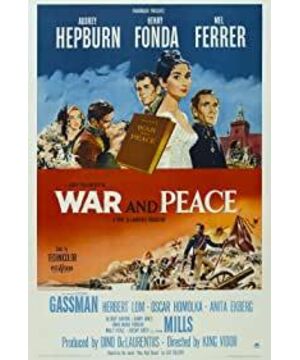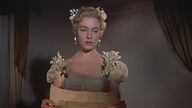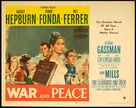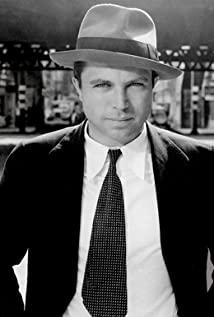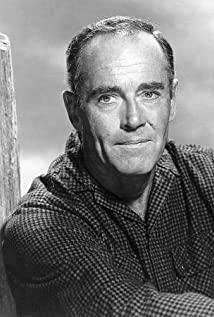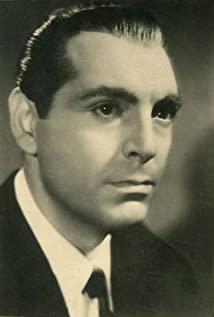The movie starts with four families, and these noble families undoubtedly have a place in Moscow, in Russia, and their sons get together all day to drink and play. Here is a description of the peaceful era in "War and Peace", and what kind of peace it was. In that era, the nobles lived a rotten life, and the rottenness mentioned here is not derogatory. Just relying on this film, I think Toweng is not criticizing this kind of aristocratic life, because any criticism always requires examples and comparisons, but unfortunately the film does not describe the life of the lower classes too much (so it cannot be said that the theme of the film is criticism. Aristocratic life is not even one of the themes!) In an age of carefreeness, such is the charm of peace.
But in times of war, these will be different. Napoleon swept the European continent and invaded Russia, and a large number of noble and enthusiastic young people were recruited into the army (it seems that in ancient foreign countries, those who defended the family and the country were basically the children of the upper class? See "Gone with the Wind (Gone with the Wind)") Several key characters are in this protection of the family. During the Great Patriotic War, sacrifices and fortunes were made to varying degrees, and the four major families were also hit. I think that Toweng borrowed the changes of the four major families to reflect the shocks suffered by people from all walks of life in the whole society. People who used to draw swords to each other have reconciled after life and death. Yes, with national grief, what personal grievances can be said? After the war, people walked to Moscow, which was burnt to the flames by themselves. Facing the ruins, everyone did not collapse - it was good to be alive. Natasha finally understood her heart in the face of Pierre, who was almost dead. The two embraced and walked towards a better tomorrow.
War destroys and shapes peace. "People" can't escape conflict in this life, and "human beings" can't escape war in this life. Toweng sees people very clearly. He knows human nature, and he naturally understands the ability of human beings to breed war in times of peace, and even more aware of the ability to heal wounds after war in times of war. People are often reluctant to mention war, and I think war and peace are like the Chinese people say yin and yang. Therefore, I am also concerned about whether nuclear weapons can really control the destructiveness that is inscribed in human genes. Once this limit is breached, will humans be so terrifying to throw nuclear weapons at each other? I am pessimistic, especially now that nuclear proliferation is intensifying, I am pessimistic enough. But still hope that things like this will come later and less often.
The most touching quote in it must be typed here: "The most difficult thing but an essential one is to love life, to love it even while one suffers, because life is all, life is God, and to love means to love God." Toon was blunt about his central idea - love life! Live, be alive!
After reading it, it inspires infinite hope for life.
View more about War and Peace reviews


